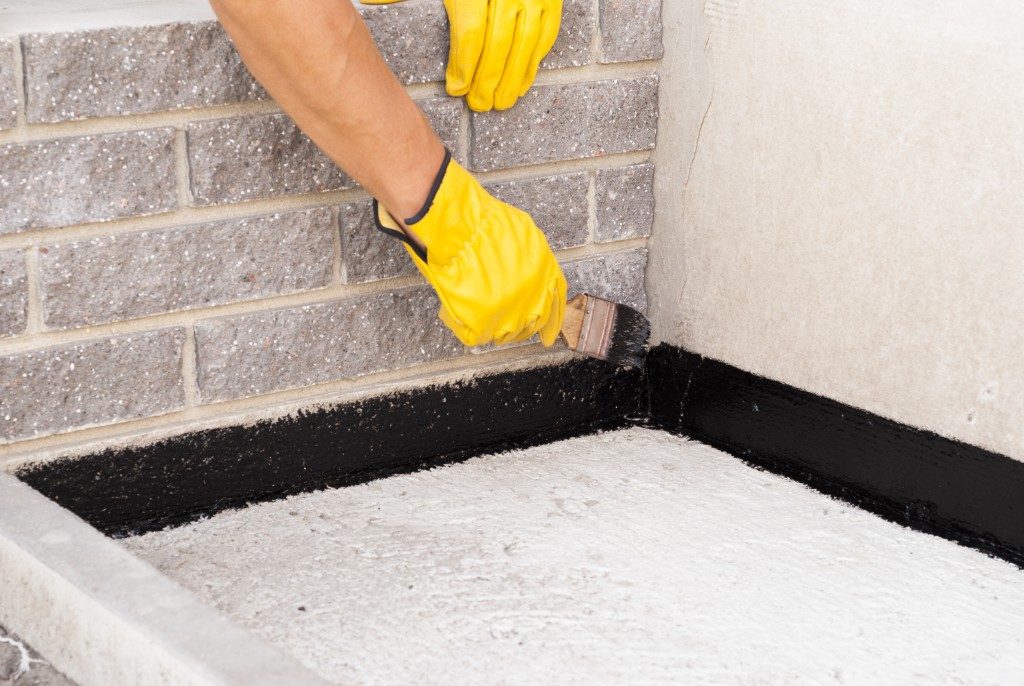Your basement serves as the overall structure of your property. In order to protect your entire home, you need to guard your basement from serious water damage. The overall foundation of your home will be negatively affected if it becomes impacted by a flood.
A flood can cause extensive water damage that will weaken the structure of your home and cost you thousands in home repairs. By waterproofing your basement, you will be protecting the foundation of your home.
Excess moisture will be reduced, and foul odours that can make you ill will also be eliminated. Here, we will provide a guide that will help you waterproof your basement.
Types of Waterproofing Methods
Bituminous coating is also known as asphalt coating. It provides a protective coat that is flexible and that is made of bitumen-based materials. It works very well on many surfaces, including concrete foundations. However, it is vulnerable to sunlight.
Cementitious waterproofing serves as the easiest waterproofing method in the industry. The materials that are used are very easy to mix and apply, making it a popular solution for many construction companies.
Cementitious waterproofing works very well with internal wet areas, such as toilets. Liquid waterproofing membrane consists of two topcoats as well as a primer coat. The liquid layer is actually quite thin and provides better flexibility than cementitious waterproofing.
However, the durability of the coating will be impacted by the polymer type that was used to make the liquid. The coatings can also be applied using either a trowel, roller, or spray.
Bituminous membrane is known for its proven performance. It is commonly used for low-sloped roofs. The membrane consists of a self-adhesive membrane as well as a top-of-the-line torch on the layer. The self-adhesive compounds consist of filler, polymers, and asphalt.
Certain oils and resins may also be added to the mix in order to boost the adhesion characteristics or properties of the bituminous membrane.
Polyurethane liquid membrane is more expensive than many of the other waterproofing methods that are used in the construction industry. It is commonly used for the flat roof area of homes, and offers higher flexibility when compared to its waterproofing counterparts.
However, it should be noted that it is sensitive to moisture. The moisture content of the slabs of concrete must be inspected very carefully before the membrane is applied. By doing so, you will prevent de-bonding or peeling of the membranes from occurring after some time.
Tips to Waterproof Your Basement
It is very important that you patch every hole and crack in your basement in order to prevent seepage from occurring. Flooding situations can also be easily avoided if you identify the source of the water. Inspect every nook and cranny of your basement for plumbing red flags.
Any issues that you notice should be repaired as soon as possible in order to prevent them from getting worse and spreading to other areas of your basement.
It is also very important to add both interior and exterior waterproofing in order to enjoy comprehensive protection against the elements. Installing a state-of-the-art sump pump and applying sealant will provide additional protection against flooding and water damage.
Repair plumbing issues quickly, and hire a professional plumber if needed in order to save more money down the line.

Benefits of Waterproofing Your Basement
Your basement will be easy to maintain over the years if you waterproof it. Minimal upkeep will become the norm, thus saving you thousands of dollars through time.
A basement that is not waterproofed may also attract vermin, bacteria, mould, asbestos, and other waterborne pathogens that can make you and your loved ones very sick.
A water-sealed basement will provide your entire home with a stronger foundation, and the risk of flooding will be drastically reduced when you waterproof your basement. Another benefit of waterproofing your basement is that it increases the value of your home.
When it is time to sell your home, an inspection of the entire house will need to be performed. When your home receives top marks for safety, its value will increase, which ensures that you will get a greater return on your investment.
Better Safe Than Sorry
Waterproofing your basement should be seen as a long-term solution for both your house and its foundation. If you use your basement on a regular basis, then it is imperative that you waterproof it in order to protect your entire property from water damage.
Flooding can cost you thousands of dollars if the damage is extensive. It is better to err on the side of caution and waterproof your basement in order to protect your investment going forward.
Mould infestations can also cause very serious problems that may require hospitalization, so waterproofing your basement will help protect your loved ones as well.
Source:
Waterproofing in Buildings [PDF]: Types, Methods, and Applications – The Constructor






